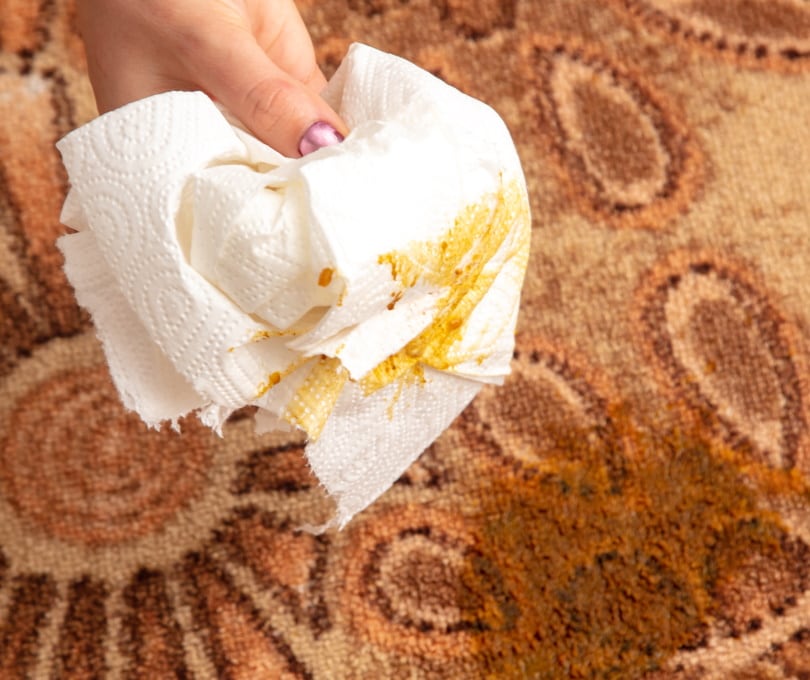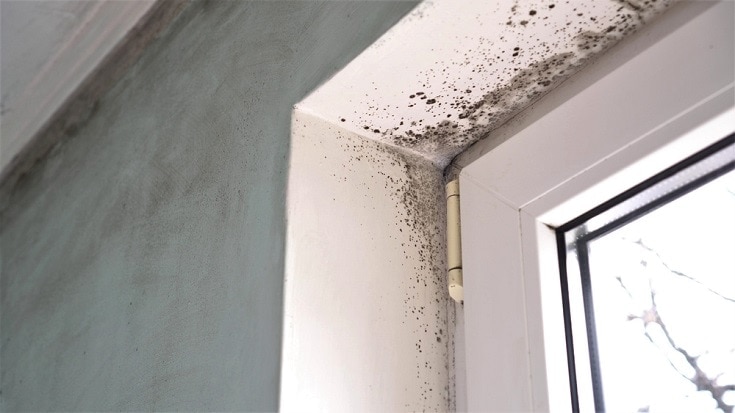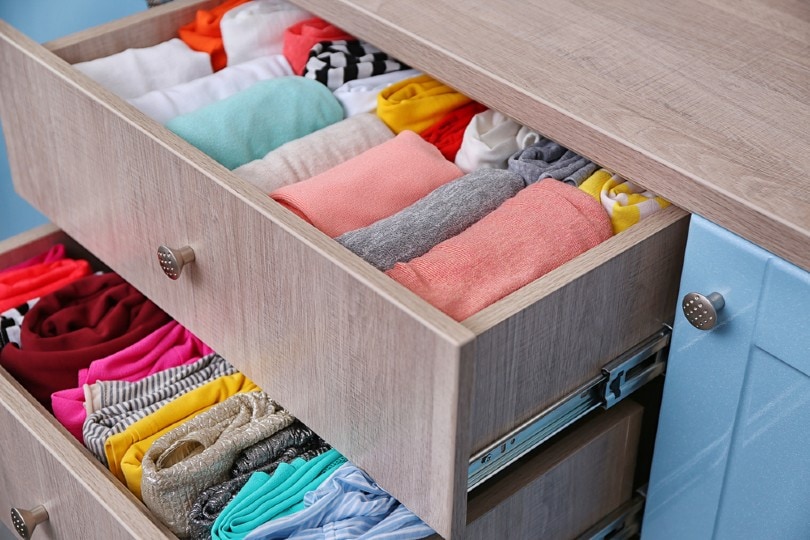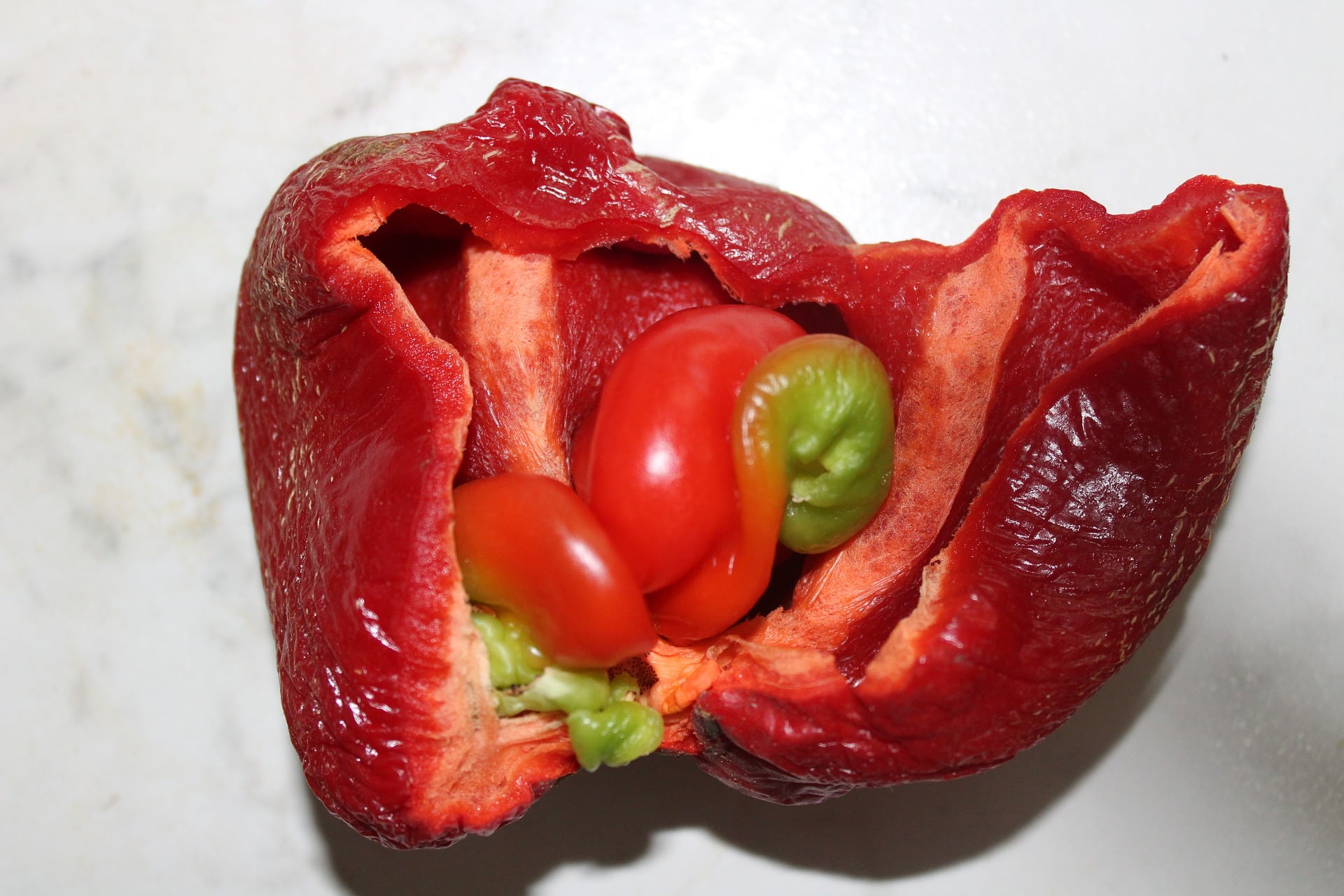Why Does My House Smell Musty? 12 Possible Reasons
-
Pete Ortiz
- Last updated:

Having a musty smell in the house can be unpleasant, tricky to track down, and will usually only get worse if left. What’s more, it could be a sign that things are about to get a lot worse, and it only takes a couple of days for the smell to really take a hold and leave you reaching for the air freshener.
Below are 12 reasons why your house might smell musty. A moldy smell is usually quite sweet and can be sickly, which differs to that of a musty smell, which smells stale and old. However, the two terms are frequently mistaken, and a musty smell could be a sign that mold will soon become a problem, so we have included some causes of moldy smells, too. As well as causes, we’ve included the best methods to treat these smells so that you can enjoy a fresh environment once again.
The 12 Possible Reasons Your House Smells Musty
1. Dirty Carpet
Carpets act like giant sponges. Not only can dust and dirt hide in the tracks and the fibers, but the carpet itself also sucks up moisture in the air and moisture is what mold and bacteria need to thrive. This is especially problematic when the temperatures start to drop and humidity levels rise, but it can be an issue any time of the year, depending on where you live and how well ventilated your home is.
As well as regular hoovering, give your carpets a good, deep clean, at least twice a year, but every three months is better if you have pets or a humid house. You can also sprinkle baking soda on the carpet. It not only helps eliminate stains and dirt, but it deodorizes and kills bacteria.

2. Stale Bedding
Bedding is another moisture mop in your home, along with your mattress. The average person sweats 200 milliliters of sweat during the night, and some of this gathers in the sheets, the duvet, and it soaks through into the mattress, although much of it is exhaled and dissipates in the atmosphere.
Use a mattress protector or topper to protect your mattress, change and wash your bedding every week or so, and regularly clean your mattress.
3. You’ve Got Mold Or Mildew
Houses with high humidity levels tend to suffer with mold and mildew. Mold is a type of bacteria, and it requires water, oxygen, and food to thrive and grow. As such, it gets the oxygen and moisture it needs from your humid environment and can feed on the wallpaper and even the wood in your home. Even once the mold is dead, its smell remains.
Typically, mold is a symptom of another problem. It could mean that you need to improve ventilation and reduce humidity, or it could mean that you have pipes that need fixing or a hole in the roof. Identify where the mold grows, bearing in mind it could be residing in the timber frame of your home, and then locate its cause.

4. Aged Dish Cloth
Whether you use a dishcloth or, worse still, a dish sponge, you should always ensure it is dried out once you finish using it. Thoroughly dried out. Not only do these items harbor the food and bacteria from your plates, but they are a breeding ground for other bacteria and because they contain food, oxygen, and moisture, they allow bacteria to reproduce and grow.
As well as cleaning your dishcloth, and ensuring it is properly rinsed and dried after every use, you can get silicone sponges that dry naturally and make life much more difficult for bacteria and mold spores.
5. Poor Air Circulation
As air circulates, the moisture in the air evaporates, which means that decent air circulation can greatly reduce humidity, and it is humidity that encourages bacteria. Despite this, we tend to keep windows closed to keep out cold air, and very few homes have decent vents or natural methods of circulating air.
Try to open windows and let air flow naturally. Install fans that will encourage air movement or get a dehumidifier that freshens stale air and reduces moisture in the local environment.

6. Stale Laundry
Once your washing machine finishes its cycle, you should remove it as soon as possible and dry it, either hanging it outside or putting it in the tumble dryer. If you leave it in the washing machine too long, it will start to go stale because it is damp.
If you’ve left the washing too long and it smells really bad, you will need to wash it again and be prepared to hang it out as soon as it’s finished. If you dry clothes on the radiator, remember that this increases humidity in the air, so putting clothes straight from the washing machine onto the radiators could be making matters worse.
7. Unaired Clothes
The problem with chests of drawers and wardrobes is that we tend to close the doors and only open them again when we want to get the clothes inside. This might not be a problem in your main wardrobe, but if there is a damp or mold problem in there, closing the doors will cause a musty smell that makes your clothes smell.
Try to leave doors and drawers open a little or buy and add silica moisture absorbers that basically suck the moisture out of the air.

8. The HVAC Needs Cleaning
An HVAC system can actually help reduce musty smells by circulating air and reducing moisture, but not if the pipes and vents are dirty or harbor bacteria. Just like the system itself needs regular maintenance, the pipes and ducts need regular cleaning. And because it is the job of your HVAC to push air around the house, it means that a musty smell in the pipes or dirty ducts will produce an obvious smell that gets pushed around the house. This is made worse because your solution to a musty smell might be to turn the AC up.
Ensure the ducts are clean and free of dust, dirt, and debris, and have the HVAC system checked and cleaned regularly to minimize the likelihood of smells.
9. Overwatered Plants
We all want to ensure our house plants have the best chance of survival and sometimes we tend to overwater them. Giving plants too much water means that the water sits on the surface of the soil, and the roots are essentially always drowned in water. It can eventually lead to root rot.
Empty the plant pot and let the roots dry out, before putting the plant back and minimizing the amount of water you provide. Consider a drop feeder if it will help you regulate feeding appropriately.

10. Old Books
Paper is highly effective at absorbing moisture which means that old books, which may have very dry pages capable of sucking up more moisture, can become damp. What’s more, paper is an organic agent that can act as food for mold, giving mold the trinity of oxygen, moisture, and food.
There isn’t much you can do if your books already smell musty. If the smell is bad, replace old paperbacks with new hardbacks, which are less likely to cause the problem.
11. Rotting Food
The smell of rotting food is not usually described as musty, but it depends on the food, its age, and the bacteria that form. Perishable food left in cupboards, or even in the fridge, can go off and will become moldy. Damaged tins and other food items in the pantry can also suffer, and food left on plates and slid out of the way in the living room or bedroom will cause a bad smell.
Clean away any leftover food, remove perishables before they perish, and look for split cans or molding food items in the cupboards and remove them. Clean the area where they were to help eliminate the smell and prevent bacteria formation.

12. Lurking Laundry
Similarly, sweaty and dirty clothes that are left in a room or even in the laundry basket for too long, can start to smell in seemingly no time.
If you have smelly laundry, take it out of the basket and wash it, making sure that you are on hand to try it once the cycle finishes and without leaving it to fester too long.
Conclusion
A musty smell can be really offensive and left to its own devices, the problem will likely only get worse, rather than go away on its own. Try to identify the source of the smell, which could be anything from dirty AC ducts to washing left in the washing machine, and then take the appropriate steps to eradicate the problem and prevent it from occurring again in the future.
Related Reads:
- Why Is My House So Humid? 7 Possible Reasons
- How to Get Rid of Old House Smell – 12 Easy Methods
- HOW TO GET RID OF MILDEW SMELL (GUIDE)
Featured Image Credit: Krakenimages.com, Shutterstock
Contents



